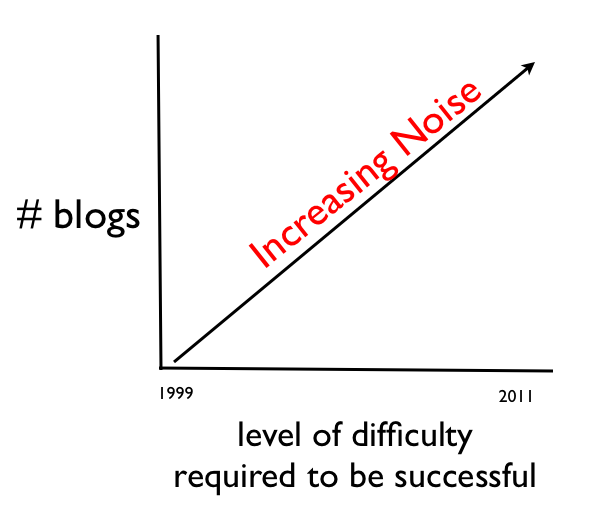It’s hard to believe that I’ve been blogging for 3 years now. I’ve loved interacting with you guys, building this community of people, and processing my thoughts out loud. Thanks for giving me grace to think and grow all along the way.
I’ve learned lots of lessons over the past 3 years. Many I’ve had to learn the hard way. Hopefully I can save you some frustrations.
Lessons I’ve learned in 3 years of blogging.
1. The more honest, the better.
People will connect with you more over your honesty and transparency than they ever will over your victories and moral platitudes. My posts that have gotten the most positive feedback have been the ones where I’m gut-level honest with my thoughts and experiences.
2. The more accessible, the better.
As I make myself accessible (here, on the blog, through comments), I find people appreciate that. To build community, you’ve got to build relationships.
3. Be generous.
The more ideas I share, resources I recommend, connections I make, and in general, the more I can give away, the more I always get in return.
4. It’s as much about ‘rhythm’ as it is ‘discipline.’
I hear lots of guys say that blogging is a discipline. And I get that. But I like to look at blogging and see where it fits in the rhythm of my life. Rather than ‘disciplining’ myself, I’d rather it be a flow of my life. I’ve found more joy and inspiration having a blogging rhythm than having a blogging discipline.
5. Put in the work now and you can reap the benefits later.
I can look back and snag some great, well thought out ideas. Someday, I just might write a book. You know where I’ll turn first for my good ideas? The archives. And it’s because I have put lots of work into so many posts.
6. Just publish.
Some days, my thoughts aren’t fully developed or perfect or polished. But I just have to “publish” anyway. It’s better to float ideas and thoughts out there, and synthesize them as you go, than to every single thought fully planned out before completion.
7. I enjoy writing.
I really do. I’ve found it a great avenue to flesh out my thoughts.
8. It’s about quality posts more than ‘technique’.
I’ve read articles on blogging technique, SEO, key words, timing, consistency, and focus. And while those things are important, don’t forget to write quality posts! If you write good stuff, Google will find you.
9. Mixing up the type of posts I write (video posts, social media, theology, etc.) is as helpful for me as it is enjoyable for readers.
Writing the same kinds of posts every day gets boring. So I mix up the categories, the style, and the focus to keep things fresh, both for the readers and for my own creativity.
10. I have no idea what it really takes to write a post that’s going to take off.
I have written about this before HERE…and it’s still true. The posts I feel will take off…fall flat. The ones I write on a whim go viral. I default back to #8 and #9 (above)
11. I’m not done.
And neither is blogging. Blogging is a great tool, and our culture is continuing to turn to blogs for information, ideas, and insights. I’m definitely not done.
If you’ve read my blog at any point over the past 3 years…thanks. Keep sharing your thoughts, experiences, and insights. Keep leading well, changing, and growing.
I hope I’ve helped you on your journey in some small way.












